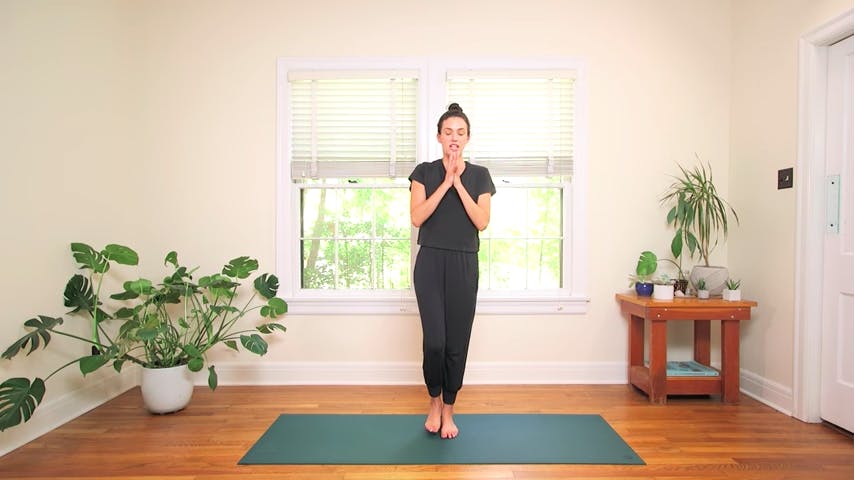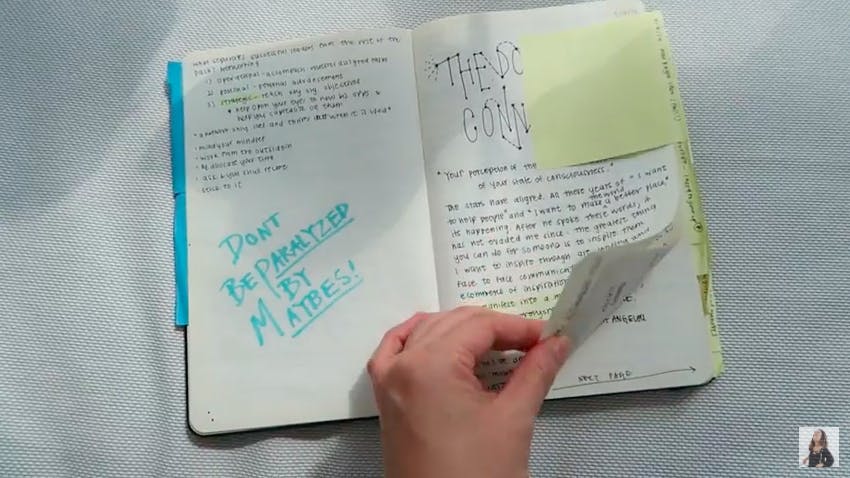After #MeToo, Time’s Up, and the recent reckoning of bad men, I’m exhausted. You probably are, too. Sharing your story can feel like you’ve let go of something really heavy, and yet, that empty space now feels raw and vulnerable. For many, saying #MeToo felt sad, freeing, unsurprising, unifying, and draining all at once.
But for those who chose not to say #MeToo, bearing the weight of your own trauma while reading the stories of other survivors (however inspiring or articulate) can feel nothing short of damaging. And like many well-intentioned social media movements that devolved into a mundane stream of hashtags, for some, #MeToo and Time’s Up might feel trivializing and disconnected from the lives of actual survivors. Maybe you told your story when a previous campaign asked you to come forward, and you don’t want to again. Maybe you don’t feel like you can say the same because what happened to you doesn’t seem bad enough. Or maybe it’s high time for action, inclusivity, and accountability, not just another round of airing out something painful for social media. No matter how you feel, know that you don’t owe anyone your story. You don’t have a responsibility to share anything, teach anything, or fix anything.
Your trauma is not social currency, and your emotional and mental well-being is certainly allowed to be your top priority. Consider this your official reminder to log off, take a break, and check out these resources for lasting self-care—and we don’t just mean face masks and lighting lavender candles.
Self-care ideas and resources
Along with tangible resources for survivors of trauma like hotlines, non-profit organizations, and online (or IRL) support communities, self-care means finding time to do just that: Take care of yourself. While the self-care hashtag has been popularized on Twitter, consumerized with branded self-care kits, and labeled a “millennial obsession,” that doesn’t make it any less valuable to your mental health.

1) Log off
What could you be doing if you spent less time online? Despite the fact that you can turn to the internet for cute comic relief, at some point you need to log off. Turn your phone on Do Not Disturb, close the laptop, and take some time to readjust your eyes to the light without a screen. Consider deleting specific apps like Instagram, Facebook, or Twitter.
If it’s not possible to delete everything due to work, school, or personal circumstances, take some time to clean out your social media feeds. Marie Kondo your internet, if you will. Does that Instagram account filled with airbrushed beach bodies and perfectly unrealistic gym butts make you feel bad inside? Unfollow it. Do you still periodically hate-stalk an abusive ex? UNFOLLOW THEM. These changes don’t have to be permanent by any means, but regulating your feeds might help you recognize the content that brings you down.
2) Create a plan
Stress and trauma can feel all-encompassing. But when you break it down and create an individualized plan, you might be able to better problem solve. According to the National Alliance on Mental Health (NAMI), developing a self-care plan involves identifying how stress feels to you and determining what stressors, events, or activities cause you to feel that way. From there, you can pare down smaller solutions to better cope with your stressors.
Start by identifying what makes you feel anxious—maybe it’s going to the grocery store, walking through a large crowd, or reading your Twitter feed late at night. I exercise a “Tweet-free weekends” policy and let me tell you, nothing good happens on Twitter on a Saturday night. Log the f**k off.
3) Communicate your feelings with a friend
Tell a trusted friend, family member, or co-worker about your self-care plan. Not only does this hold you accountable if you’ve set certain goals, but it gives you a support system to fall back on when taking care of your needs feels impossible. Reach out to friends you know you can text or call at a moment’s notice. Let them know they can do the same with you. Making sure the people around you know how you feel when you’re stressed helps them to better understand and support you.
READ MORE:
- How to distract yourself from the internet
- A plain and simple guide to understanding consent
- Everything you have never understood about being nonbinary
- What is social justice? The rise of the social justice warrior
4) Reconsider your environment
Take a minute to review the stressors that you might encounter on a typical day. Depending on your work environment, the things that trigger anxiety might be something more obvious, like talking about sexual harassment news at work, being the only minority in a meeting, or working directly with other people who have experienced trauma. According to the Office for Victims of Crime, “compassion fatigue” is considered an “occupational hazard” for caregivers, friends, family, counselors, or advocates. If you work in a field that is directly impacted by sexual harassment news, it’s only natural to shift into overdrive during times of crisis. If you’re a counselor, for instance, you might push through any anxious feelings of your own because the welfare of the survivors you work with is your first priority. Or if you’re a reporter, you might push aside your own trauma for the sake of the story.
The idea that the work of your agency and the well-being of survivors is paramount is implicit in this culture, and that’s not going to go away. Just remember that advocacy needs to be centered on the advocate just as much as the survivor. You are not an impenetrable, anesthetized being—you are a human. Working with trauma survivors can be rewarding and deeply important work, but only if you practice self-care just as much as you probably tell others to.

5) Exercise
You’ve heard this a million times, but there’s a reason why exercise is recommended as a means to relieve stress and improve overall happiness. Daily exercise increases the production of stress-relieving hormones like serotonin, blah blah blah—OK, sure, working out still sucks. But do not fear!
Take the stairs, work a small walk into your morning routine, listen to an enthralling podcast as you run, or find a playlist that makes you want to dance. Incorporating movement into your routine doesn’t have to mean marathon runs or hitting the gym. Check out at-home workout YouTube channels like Blogilates or use free workout apps to make movement even easier.
6) Make an appointment to do something you love
If you’re super busy, have anxiety, or are prone to depression that sometimes leaves you glued to your bed, scheduling a concrete time to do something you love is a great way to stay on track. Your Google Calendar comes in handy on this one. Schedule a time to meet up with friends, finish your reading goals, or cook yourself a healthy meal. Tell yourself you have to meet this deadline just as much as you would for work or school. I highly encourage the use of checklists and sticky notes that say things like “GET UP AND MAKE COFFEE” or “You are doing just enough and I love you,” if you are so inclined.
Some helpful advice from RAINN is to reflect on the last time you felt physically and mentally healthy or stable. What kind of routines were you sticking to at that time? What did your day-to-day look like? If you can replicate even the most minuscule parts of that routine during a highly stressful or traumatic period, your body and mind will thank you in surprising ways.
7) Meditate
You’ve probably seen people posting about “mindfulness,” and wondered if it’s really for you. According to Psychology Today, mindfulness is a “state of active, open attention on the present,” which, similarly to your self-care plan, just means taking the time to check in with yourself. Focus on how you’re feeling in this moment—not just mentally, but in every part of your body. Where in your body have you been storing all this weird, omnipresent tension? Practice breathing exercises (even if it sounds silly), try yoga that’s tailored to mental health, or add some mindfulness apps to your phone that help relieve stress and gently remind you to reset.
READ MORE:
- The best free workout and fitness apps
- How to know if you’re a victim of ‘gaslighting’
- Is weed actually bad for you?
- 4 ways to get out of a toxic relationship
8) Write
Even if you’re not a writer, hear me out. There’s a reason people journal, blog, and write poetry in times of stress. Writing forces you to organize your thoughts—or at least purge them—in a way that is structured but also creative. Plus, when you’re writing for yourself, you don’t have to say something beautiful or relatable or spell everything correctly, and you definitely don’t have to share.
Make a bullet-point list of how you’re feeling right now, or set lofty goals you’d like to reach in the future. Want to feel completely distracted from the present? Check out abstract writing prompts and make up a wild short story. Contribute to a Reddit forum or more private discussion to air your grievances, or join in on a fanfiction thread.
9) Get enough sleep
It seems obvious, but if you have anxiety, PTSD, or lingering trauma, getting to sleep can feel like the most difficult part of your day. Assess what it is that keeps you up at night. Make sure your space is as comfortable as possible. Though it may seem unnecessary to invest in comfortable pillows or a night light for your bedroom, small adjustments to your environment could make all the difference. What’s more, some apps can help you track your sleep and relieve anxiety in order to get you to sleep faster.
10) Don’t be afraid to ask for help
If you’re feeling chronically depressed or anxious, or you have any recurring trauma that affects your everyday life, it may be valuable to seek out therapy or use online mental health resources, including hotlines. There are always more options than you think. Here are just a few:
- Rape, Abuse & Incest National Network (RAINN)
- National Alliance on Mental Illness
- Safe Horizon
- Suicide Prevention Lifeline
- The Trevor Project
If you’re looking for a local therapist to talk to on a weekly basis, check out Psychology Today‘s therapist finder. You can filter for “sliding scale” as well as therapists based on gender, sexuality, and faith, and issues they specialize in—ranging from something as broad as anxiety to something as specific as infertility.
Editor’s note: This article is regularly updated for relevance.









